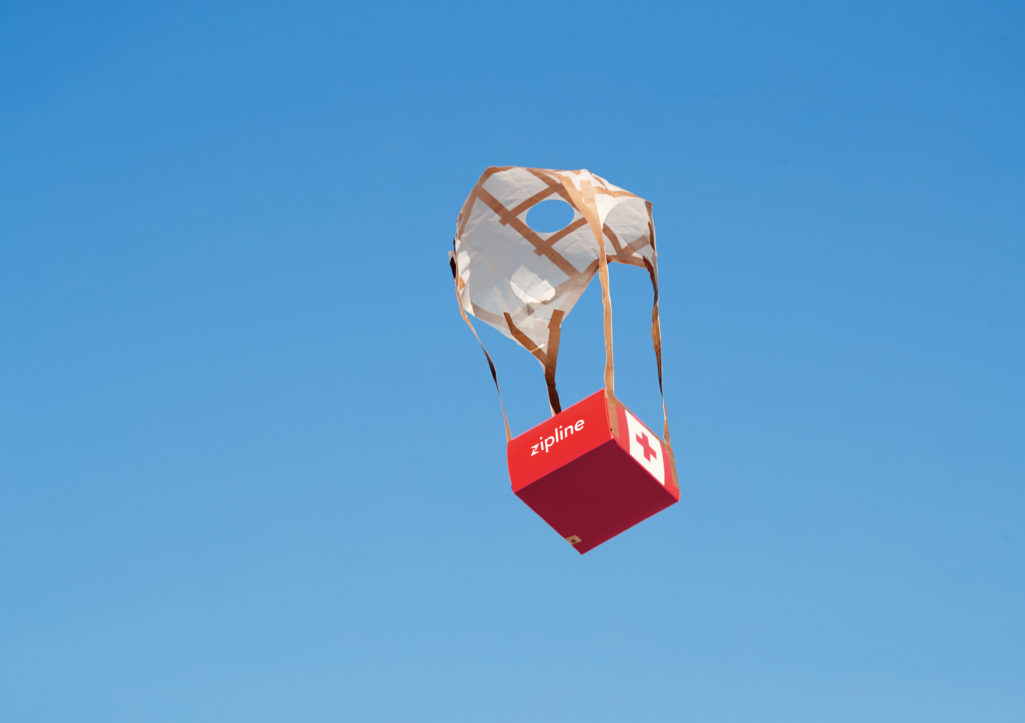Patients receiving medical treatment in hard to reach health facilities in Ghana can now heave a sigh of relief after the country launched a medical drone delivery service on Wednesday.
Many patients often lose their lives as a result of difficulties in supplying blood, drugs and other essential medical products to such hard to reach facilities.
But with Ghana launching it’s medical drone delivery service, there are hopes such deaths can now be avoided.
In December 2018 Ghana’s parliament approved the $12.5 Million contract between the government and private company Zipline.
Per the contract Zipline will be supplying forty-six medical products to health facilities especially those in deprived areas.
Daily delivery by drones
Zipline is expected to be running about 150 flights daily from its four distribution centers.
Over 2,000 health facilities are expected to benefit from the on-demand medical drone delivery service.
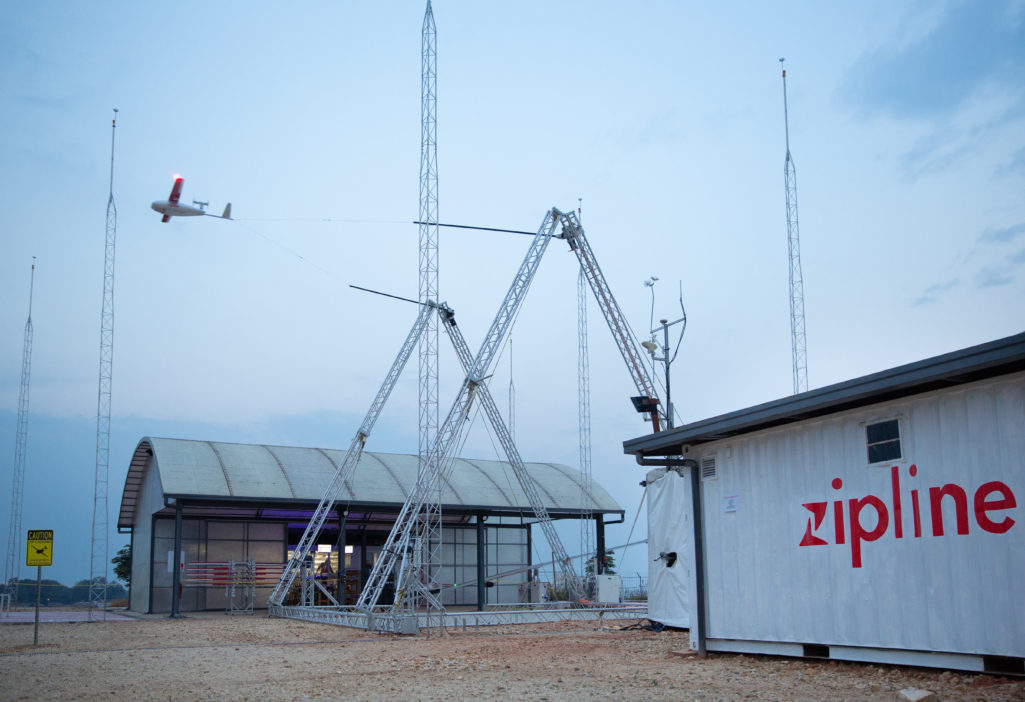
The system will operational 24 hours daily with centres stocked with 148 lifesaving and essential medical supplies.
Those to benefit from the services are mostly women in childbirth, patients in need of emergency medicines for surgeries, severe infections among others.
The drones, according to officials of Ghana’s Health Service will not replace the existing supply chain instead handle emergency stock out situations.
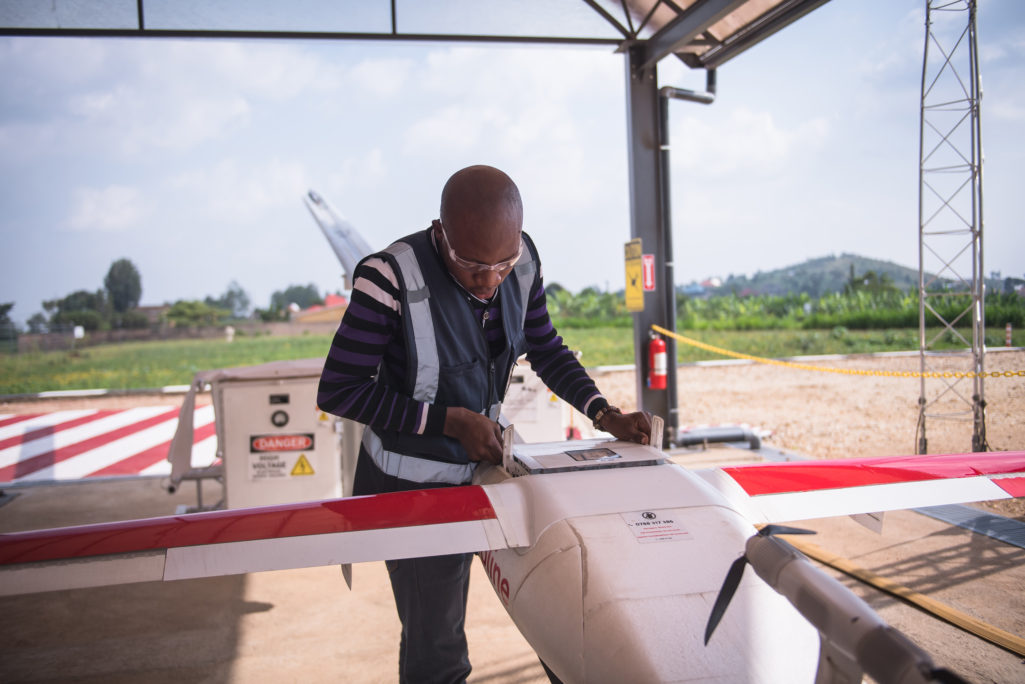
The Director-General of Ghana’s Health Service Dr Nsiah Asare had told journalists that the project will make Ghana the most advanced health care supply chain on the planet.
“The purpose of the drones is part of Ghana government’s policy to deliver quality health service to every Ghanaian. We have sustainable development goals—goal 3, which says that every Ghanaian everywhere should have quality care.”
Ghanaians are going to use the drones to deliver drugs and services. We believe that it is the most cheapest and efficient way to deliver to the remotest and under-served areas of the country,” Dr Asare said.
Beneficiary patients ‘happy’
Some patients at the New Tafo General Hospital in Eastern Ghana have already benefited from the medical drone service.
44 year old Charles Coffie who bled profusely after a surgery at the hospital has described the service as a life-saving initiative.
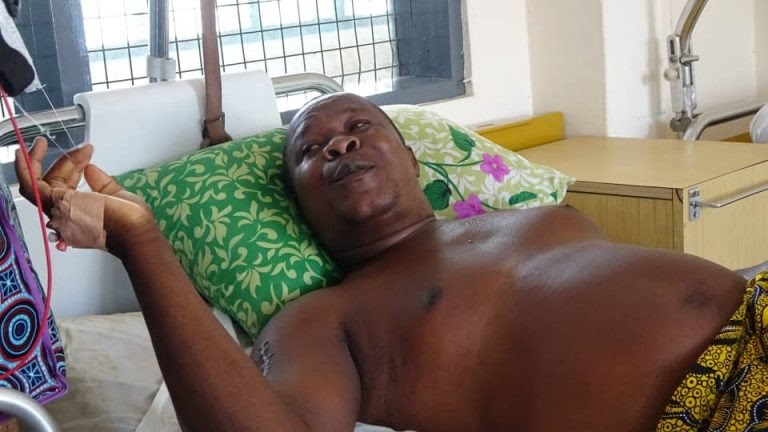
“During my surgery I was bleeding profusely and my relatives were told I needed blood badly from Korle Bu (Ghana’s major teaching hospital in the capital Accra).
They were really scared of losing me because it would have take several hours for the blood and other essential drugs to get here. But thanks to the drone service I got the needed supplies to survive. I am very happy about the initiative”.
Health facilities in Ghana’s rural communities record high cases of maternal mortality.
The difficulties associated with the supply of blood and other essential medical products to the health facilities are also contributing to the cases of maternal mortality.
But health officials in these rural communities are hopeful that the drone service will reverse the trend.
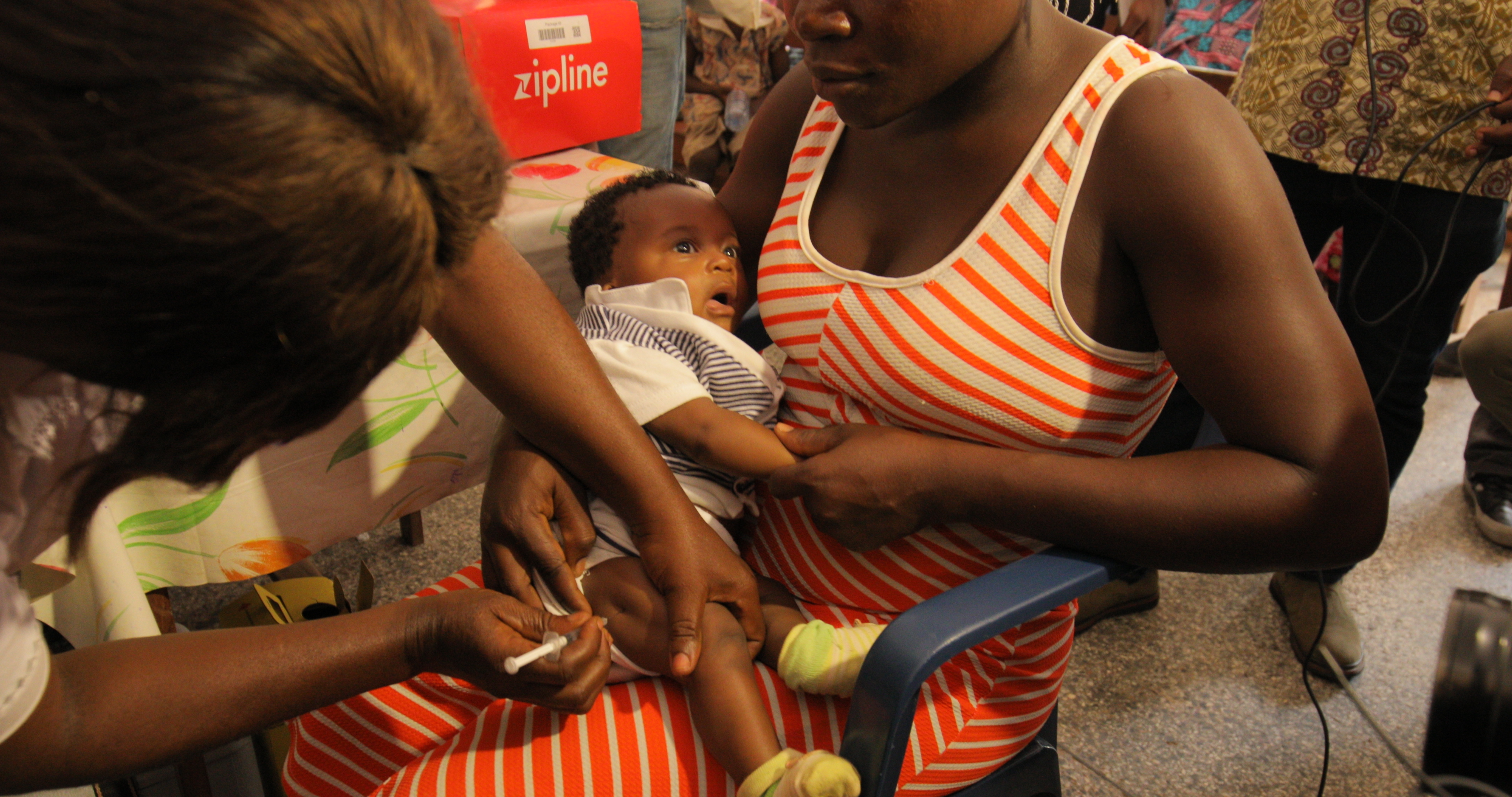
Medical Suprintendent at the New Tafo Government Hospital Dr. Kobina Awotwe Wiredu said the initiative will improve maternal and child health indicators.
“Sometimes because of our poor road networks it takes about five hours to supply blood and other products and you may not come to meet the patient alive. The drone service is coming to help us a lot.
If I have a patient who is bleeding profusely after delivery and I can have the blood and other products within thirty minutes then I think it is really going to reduce the cases of maternal mortality,” Wiredu said.
The world’s first national drone delivery service was launched in Rwanda in October of 2016.
Source: Africafeeds.com

